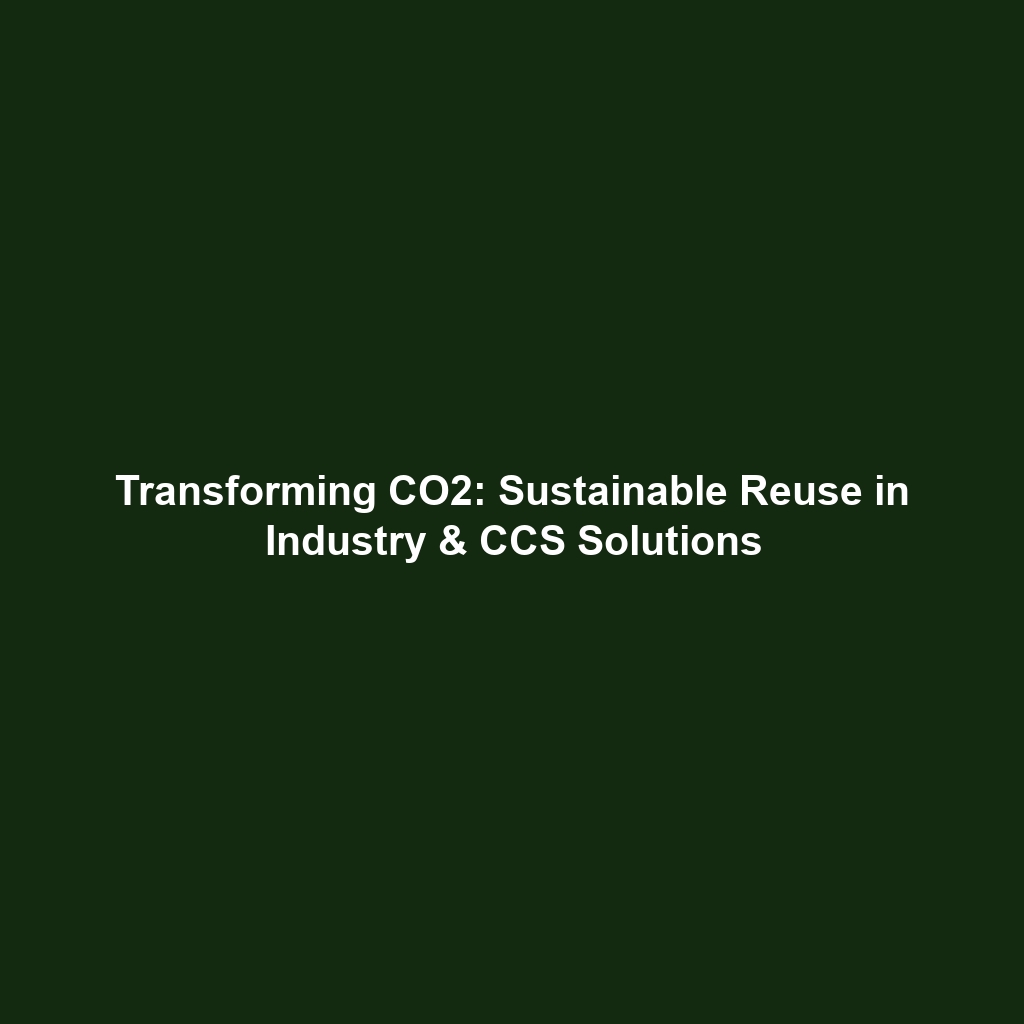Utilization in Industry: Reusing CO2 for Products and Processes
Introduction
The utilization of carbon dioxide (CO2) in industrial processes represents a critical advancement within the realm of Carbon Capture & Storage (CCS). By capturing CO2 emissions and converting them into valuable products, industries are not only addressing the pressing challenge of climate change but also enhancing their sustainability profiles. This multifaceted approach is significant as it contributes to reducing greenhouse gas emissions while creating new economic opportunities in various sectors. Understanding the feasibility and benefits of reusing CO2 may pave the way for innovative applications that can reshape current industrial practices.
Key Concepts
Utilization in industry revolves around the transformation of captured CO2 into usable products or processes. The key concepts include:
- Carbon Capture: The process of capturing CO2 emissions at their source, such as power plants or industrial facilities.
- Conversion Technologies: Methods such as chemical processes, biological processes, and mineralization that convert CO2 into fuels, chemicals, and materials.
- Sustainability: The long-term viability and environmental impact of utilizing CO2 as a resource rather than a waste product.
These principles highlight how CO2 utilization is an integral component of effective Carbon Capture & Storage (CCS) strategies, contributing to both economic and environmental benefits.
Applications and Real-World Uses
The applications of utilizing CO2 in industry showcase its potential to transform various sectors. Some of the most significant examples include:
- Production of Synthetic Fuels: CO2 can be converted into methanol or other hydrocarbons, providing an alternative energy source.
- Database of Materials: CO2 is utilized in creating polymers used in manufacturing, enhancing product performance while reducing emissions.
- Kraft Pulping Process: In the paper industry, CO2 is used in chemical pulping, improving the recycling process and sustainability.
These applications of CO2 utilization in Carbon Capture & Storage (CCS) illustrate the technology’s versatility and its capacity to create new revenue streams.
Current Challenges
Despite its potential, the utilization of CO2 faces several challenges that hinder broader adoption within Carbon Capture & Storage (CCS) frameworks:
- Economic Viability: High costs of capture and conversion technologies can limit scalability.
- Technical Hurdles: The efficiency of conversion processes remains a significant barrier to widespread implementation.
- Regulatory Issues: Lack of clear regulatory frameworks can impede investment and innovation in CO2 utilization technologies.
Future Research and Innovations
Looking ahead, many promising innovations hold potential for enhancing CO2 utilization in industry. These include research into more efficient catalysts for chemical processes, advancements in direct air capture technologies, and developing integrated systems that combine CO2 capture with utilization. Furthermore, breakthroughs in implementing artificial intelligence to optimize production processes could revolutionize the industry, significantly impacting the future of Carbon Capture & Storage (CCS).
Conclusion
In summary, the utilization of CO2 for products and processes offers a substantial opportunity to address climate change while promoting sustainable industrial practices. By overcoming existing challenges and harnessing future innovations, the industry can effectively incorporate CO2 utilization into Carbon Capture & Storage (CCS) frameworks. For more information on related topics, consider exploring our articles on CO2 Capture Technologies and Sustainable Industrial Practices.
